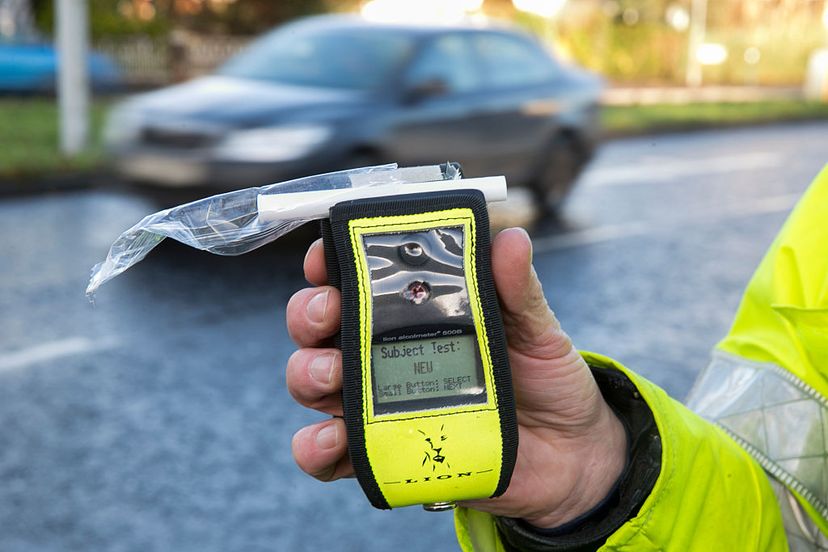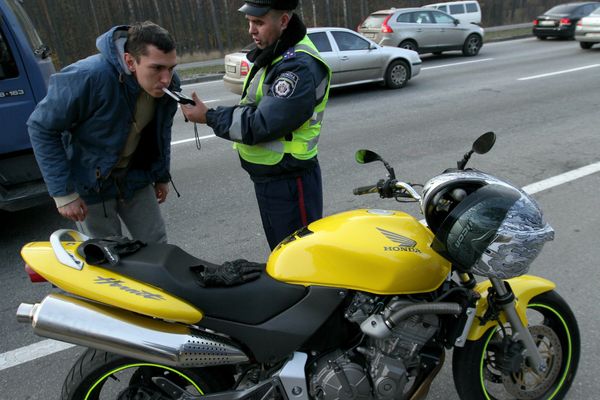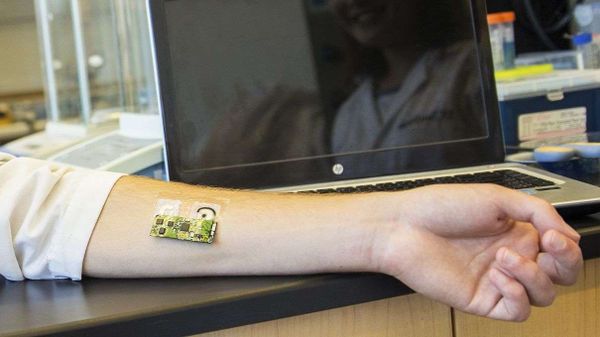
Breathalyzers have long been used to determine someone suspected of drunk driving's blood alcohol level, but the recent legalization of marijuana in multiple states and escalating heroin and prescription opioid abuse epidemic in the U.S. are causing some to hope for such a test to detect driving while under the influence of drugs.
Marijuana is currently the second most commonly detected drug (behind alcohol) in the blood of people involved in crashes, and a 2010 study showed that 47 percent of drivers involved in deadly accidents tested positive for a prescription drug, most often pain relievers.
Advertisement
Currently, marijuana is detected through a blood or urine test, but police and others have been interested in utilizing a breath test — similar to the one given to check for alcohol impairment — as that is much easier to administer and gives results immediately.
However, developing an effective drug breathalyzer isn't as simple as tweaking the existing alcohol-detecting models. This is because the substances are metabolized differently. To measure blood levels based on breath, you need to know the vapor pressure of the substance — which is how a compound behaves when it moves from being a liquid to a gas, such as when a molecule leaves your blood and is exhaled in your breath. Molecules with a high vapor pressures, like ethyl alcohol are always escaping. That's why you can easily smell alcohol, whether on a person or an open bottle of rum.
But THC (the chemical compound in marijuana that gives the "high") has a very low vapor pressure. It is so low that the technique used for measuring alcohol — putting the substance in a closed container and waiting for the pressure to equalize — doesn't work to measure THC. It would take too long. Recently, scientists determined they could use a technology called PLOT-cryo to analyze the few molecules of THC that make it into the vapor phase. This could pave the way for a marijuana breathalyzer.
A small study published in a 2013 issue of Journal of Breath Research investigated whether drug intoxication could be identified through breath. Swedish researchers conducted tests looking for substances like marijuana, cocaine, methamphetamine, methadone and morphine. They used a method of chemical analysis called liquid chromatography-mass spectrometry for the breath and blood plasma tests. "In general, data from breath, plasma, urine and self-reporting were in good agreement, but in 23 percent of the cases, substances were detected that had not been self-reported," they write in the study. "All substances covered were detected in a number of breath samples. Considering that breath sampling was often done about 24 hours after intake, the detection rate was considered to be high for most substances."
However, the researchers could not detect exactly when the person had last taken the drug, which is an issue when determining whether someone is driving under influence. "Opioids stay in your body longer since they are not soluble like alcohol," explains Dr. Harold Jonas, CEO and founder of Sober.com in an email. "Some [opioids] can stay in your body for weeks, unlike alcohol." This is true of THC as well.
Clare Waismann, certified addiction treatment counselor and founder of the Waissman Method of rapid detox adds another wrinkle, specific to opioid detection. "How soon or rather how late after taking an opioid, can the test register positive for opioid intoxication? For instance, some opioids are extended release and some are immediate release," she notes in an email. "Taking this into account, how accurate would the test be for the overall situation and not the exact minute?"
Despite these obstacles, many companies are working on producing an accurate, reliable breath test for drugs. Dave Claflin, founder of Fastest Labs says that Lifeloc Technologies is one company that's in the research phase of breathalyzer technology for quick testing. Even once a breathalyzer is available, the machine would have to pass federal regulations for the department of transportation, as well as regulations for each particular state, Claflin notes. "[States] have a standard that this handheld machine has to fall within. It has to have its own checks and balances built into the actual machine."
Advertisement


